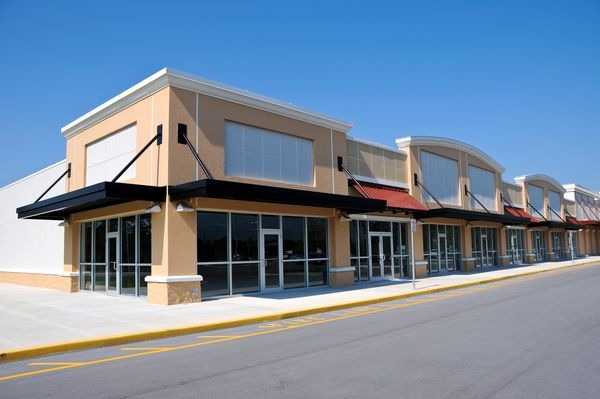
The property where you conduct business is a valuable asset. Like residential real estate properties, commercial properties can appreciate over time and bring revenue to your business. Unlike residential real estate; commercial property exposes to you more liability and risk.
It’s important not only to understand what your commercial property insurance covers, but also to know how much and what kind of commercial property insurance coverage you need. This quick guide will get you started.
Why Do You Need Commercial Property Insurance?
For one thing, if you own the property, having the proper insurance may be a mandate by your lender. If so, you’ll need to purchase a policy that includes the required coverage.
Aside from that, commercial property insurance protects your structures, inventory, equipment, and supplies from theft and damage. If the property where you conduct business is essential to operations, or if the property itself is the business, you need commercial property insurance.

What Does Commercial Property Insurance Cover?
This insurance covers loss or damage to commercial property—that is, the buildings and structures where you conduct business. It protects the items housed within them, including inventory, equipment, furniture, and supplies. It also provides theft coverage and the cost of replacing (or repairing) damage to commercial property.
In some cases, commercial property insurance also covers the lost income you experience as a result of property damage or provides coverage to temporarily move your business into a habitable structure. Some policies also provide liability insurance.
There are three main types of commercial property insurance policies, as follows:
Stand-Alone or Basic Form Policy
This type of insurance policy covers losses that result from natural events like fires, windstorms, hail, explosions, and lightning.
Commercial Package Policy (CPP)
Sometimes called a “special forms” policy, this type of commercial property insurance provides higher levels of coverage, specifically tailored to meet your business’s needs. A CPP allows you to add certain exclusions that aren’t covered under Florida law.
Here are some of the more common exclusions in the state of Florida:
- Ordinance or Law Coverage – This protects you from loss resulting from local and state ordinances.
- Flood Coverage – Because the National Flood Insurance Program covers most insurance in high-risk zones, an insurance provider may only offer supplemental flood insurance.
- Earthquake and Volcanic Eruption Coverage – These endorsements provide the business structures with coverage in the event of earthquakes and volcanic eruptions.
- Manufacturer’s Consequential Loss Assumption -This endorsement covers reduction in value to undamaged inventory due to the physical loss of other property.
- Spoilage Coverage – This covers damage to perishable stock in the event of a power outage or other breakdown of the refrigeration system or cooling and humidity control equipment at your commercial property.
- Utility Services Endorsement -This provides coverage in case of power interruption, but the cause of the interruption must be covered in the CPP.
Business Owner’s Policy
A business owner’s policy combines property and liability coverage. It’s the policy you’ll need if you’re running a retail business or own an apartment complex—anyplace where individuals other than your employees may suffer injuries at your place of business.
What Doesn’t Commercial Property Insurance Cover?
Generally, this insurance only covers theft, damage, and destruction involving structures and equipment. It doesn’t cover land, vehicles requiring auto registration, landscaping, and cash kept on the premises.
Basic form policies and CPPs don’t protect business owners from personal liability claims. You’ll only receive that level of coverage with a business owner’s policy. Moreover, if you have a CPP, you’ll receive coverage for only those exclusions that you select.

What’s the Cost of Commercial Property Insurance?
The average business pays somewhere between $1,000 and $3,000 per million dollars of commercial property insurance coverage. The average cost of annual coverage nationwide is $742.
There are many variables in the cost of a commercial property policy. A commercial package policy is more expensive than a Basic form policy simply because it covers exclusions. You’ll also pay more for commercial property insurance if you’re operating a business in certain areas or working with hazardous materials.
The amount of coverage is also an important factor in cost. Are you seeking replacement value for destroyed or stolen equipment? That will cost more than actual cash value coverage.

What Can You Do To Avoid Filing a Claim?
The most important thing that you can do to avoid filing a claim is to be proactive. Improving the safety of your premises, installing good security, and performing regular maintenance can all reduce the need to file a claim.
How Do You File a Commercial Property Insurance Claim?
In the state of Florida, you have two years from the time of the incident to file a commercial property insurance claim. If the insurer acts in bad faith and denies a valid claim, you’re allowed five years from the bad faith incident to file.
It’s common for an insurance adjuster to ask for a recorded statement, but in some cases, they can use this to deny a claim. If you feel unsure of what to do, it’s best to consult with a property attorney.
Once you file the claim, the insurance company must acknowledge receipt within 14 days. They’ll provide you with a list of items you need to validate the claim, along with instructions for filling out the claim forms, at this time.
The insurer must reach a decision about whether to accept your claim within 90 days. Once you have come to a settlement, they have 20 days to issue the first payment.
When to Contact a Lawyer
Are you confused about the commercial property insurance claims process? Has your insurer rejected one of your commercial property damage claims? Do you feel that your insurance company is acting in bad faith?
There’s nothing worse than getting the runaround when your bottom line is at stake. GED Lawyers has a dedicated team of property lawyers who can help you navigate the complex world of claims disputes and help you reach a settlement. Contact us online to schedule a free case review, or give us a call at 561-995-1966 or toll-free at 844-443-3529.

